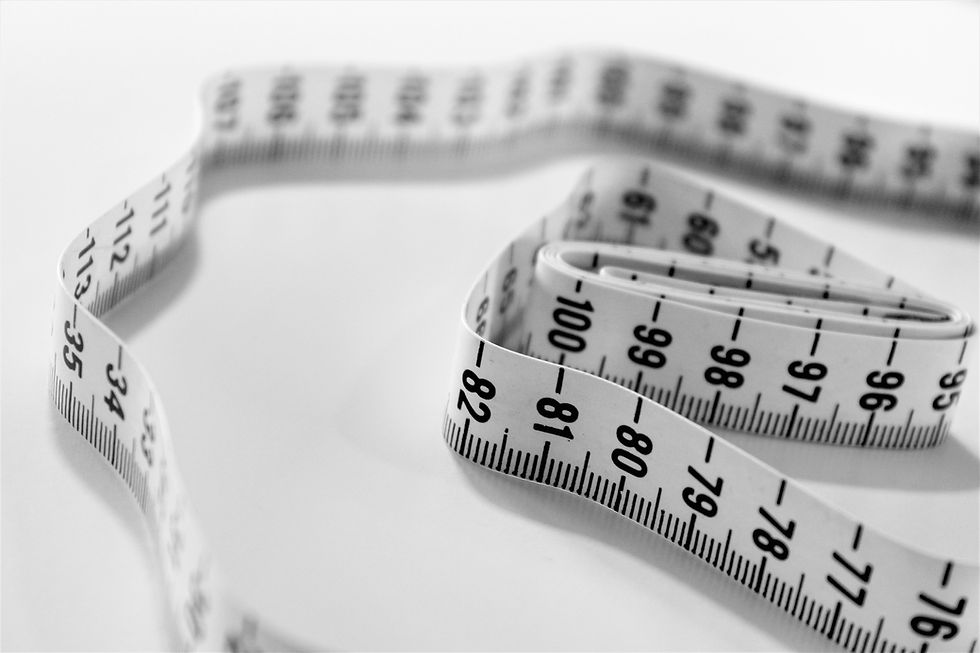You Lost the Weight, But the Real Struggle Begins After Injections, and What to Do Next
- Brainz Magazine

- 2 hours ago
- 5 min read
Claire Jones is an award-winning weight loss coach, helping people build a healthy relationship with food and themselves. She is the author of How to Eat Less, and the founder of YourOneLife. Claire empowers clients to break free from diets, create effective habits, and build confidence in new challenges, guiding them towards lasting success.

After successfully losing weight with the help of injections like Mounjaro or Ozempic, many people feel victorious. But what happens when the appetite returns, and the weight feels like it could creep back on? The emotional and psychological challenges that come after weight loss often reveal why the real work begins once the injections stop and how addressing the deeper issues can lead to lasting success.

You did everything right – So why does it feel like it’s all slipping?
For months, everything worked like clockwork: hunger down, energy up, control regained. You felt like yourself again, or maybe like someone new, the someone you always hoped was underneath.
But now? The appetite is back.
And you’re suddenly gripped by the fear that this was all just a phase… a borrowed success you don’t know how to hold.
This is the part we don’t prepare for. Because we don’t think it will happen to us. Except it does.
It’s not the weight loss.
But the aftermath.
“Almost like a nightmare…”
One of my subscribers replied to my weight loss injection article recently with a message that felt like a quiet echo of hundreds of others I read about daily on social media.
“I used Mounjaro to lose 3 stones over the course of 2024. I looked and felt great, except for all the loose skin I was left with as a result of losing muscle. I have now regained 9lbs and am struggling not to regain more. I am fearful of those regained 9lbs representing an inexorable slide toward regaining the whole lot. I can’t resort to taking Mounjaro again, as it no longer curbs my appetite: it is as though my body has become immune to it (and I can no longer afford it anyway).
It did nothing to solve my eating problem, but merely placed a sticking plaster over it.”
This is what happens when weight loss outpaces your ability to adapt. Fast weight loss changes your size, but it doesn’t automatically change your self-perception, your coping strategies, or your nervous system.
GLP-1s like Ozempic and Mounjaro are incredibly effective at what they were designed to do when taken properly: reduce appetite, delay gastric emptying, and regulate blood sugar. They interrupt the biological cues that make overeating so hard to resist.
But they don’t teach you how to:
Understand your stress response
Navigate cravings triggered by emotions
Rebuild the identity of someone who no longer needs food to self-soothe
So when the medication ends, the structure dissolves.
And your nervous system, left untrained, reaches for what it knows: food.
This isn’t a rebound, it’s a natural response
You may not be “back where you started.” But you can feel the old hunger creeping in, not just physically, but emotionally.
The hunger for control. The hunger for safety. The hunger for something that stabilizes your day.
And here’s what makes this phase so hard: You’ve seen the result. You’ve tasted life on the other side. You know what it’s like to feel good in your body, and now that it feels under threat, the panic is louder than ever.
But the truth is: this moment was always coming because weight loss without emotional infrastructure is weight loss that’s hard to hold.
To paraphrase Dr. Judson Brewer, author of The Hunger Habit: Even if we remove the behavior, the emotional reward loop remains. Without replacing it with something grounded, the old wiring pulls us back in.
The drug created space. But space isn’t a system or a strategy.
It’s just a pause.
The result was real, but so is the tension you feel now
It’s possible to be proud of what you’ve achieved and completely unsure of how to maintain it. It’s possible to feel calm and confident… until your appetite returns, and every meal becomes a negotiation again.
Because if your internal narrative never shifted, if your identity didn’t grow with your result, you’re left holding a version of success that still feels separate from who you are.
Behavioral scientist BJ Fogg advocates that when you see yourself as the kind of person who succeeds, change becomes easier. But if you still believe you’re someone who struggles, your brain will work to keep that story consistent instead.
You lost weight, but without being given the tools to change your story.
Your biology is wired to fight back
And it’s not just your mindset.
In the now-famous Biggest Loser study, researchers followed contestants six years after their dramatic weight loss. Despite ongoing efforts, most had regained the weight, and their metabolism had slowed significantly.
The body, sensing perceived threat, fights to restore its previous weight.
Dr. Herman Pontzer, author of Burn, explains why and how, when we dramatically reduce intake, the body adapts. It finds ways to conserve energy, reduce output, and defend the weight it was before.
This doesn’t mean regaining weight is inevitable.
But it does mean that your body has a say, and if your emotional and behavioral foundations haven’t changed, and your strategy isn’t in keeping with your biology, your results won’t last.
What you’re dealing with is normal, but not inevitable
One of the most honest things a client wrote was this:
“The drug is amazing, but it doesn’t address the underlying issues. They don’t go away–they are merely temporarily silenced.”
That’s the part no one listens to. The real work isn’t in the deficit.
It’s in learning how to respond to hunger without fear. How to eat without guilt. How to live in your body without waiting for the control to slip.
This is the work of weight loss that most people never get to.
Because by the time they need it, they’re already tired from chasing the result. But it doesn’t have to be that way, with the right knowledge, understanding, and support.
This is the work I do
I coach people in this exact place:
They’ve lost the weight, but feel scared of what happens next. They want to stay grounded, without counting, restricting, or chasing. They know that what’s coming up now isn’t physical. It’s emotional. It’s patterned. And it’s calling for more than another plan.
This isn’t performance coaching. It’s identity-led, belief-shifting work that helps you build the stability that the drug never could. It’s structure. It’s clarity. It’s the kind of support that starts where the prescription stops.
If you’re feeling fragile after success, you don’t need to start over. You need to go deeper.
You can start with a free call. Or explore my 1:1 coaching here.
Read more from Claire Jones
Claire Jones, Weight Loss and Confidence Coach
Claire Jones is an award-winning weight loss coach and author of How to Eat Less. After struggling with her own weight and relationship with food, she transformed her mindset and developed a sustainable approach to lasting health. Now, she helps others break free from dieting cycles, build confidence, and create healthier habits. With a background in coaching and behavioural change, Claire empowers clients to embrace a positive, long-term lifestyle. Her mission is to inspire sustainable health and self-belief.
References:
Brewer, J. (2022). The Hunger Habit: Why We Eat When We're Not Hungry.
Fothergill, E. et al. (2016). Persistent metabolic adaptation 6 years after “The Biggest Loser” competition. Obesity, 24(8), 1612-1619.
Pontzer, H. (2021). Burn: The Misunderstood Science of Metabolism






